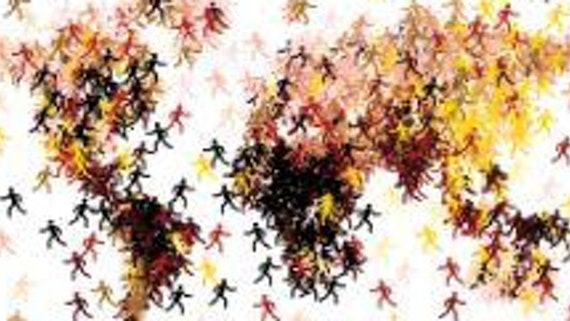Ethnography and Cross-Cultural Research Workshop
This event has ended.
Contact
Add to calendar

A workshop to launch a conversation amongst researchers doing fieldwork in cross-cultural contexts. It is an opportunity to gain insight from scholars who engage with ethnography in their interdisciplinary research areas (cultural studies, gender studies, language communities, politics and international relations), and critically reflect upon experiences, challenges and methods.
Naomi Wells, Institute of Modern Languages Research, School of Advanced Study, London
Ethnography as Theory and Practice in Modern Languages Research
As Jan Blommaert has forcefully asserted, ethnography is much more than just a research method, but instead should be viewed as a full theoretical system (2018). Drawing on examples from my own fieldwork-based research in Italy, Chile and the UK, this presentation will explore the critical epistemological issues which arise from the emplaced and embodied encounters which define ethnographic research. In particular, I will discuss how ethnography requires us to place our own biographies and bodies into critical dialogue, and consequently to engage more directly with our geographic and historical position in relation to questions of race, nationality and power (Puri and Castillo 2016). Equally, I will address how ethnography has a broader applicability across Modern Languages as a transformative praxis in relation to how we understand our positionality as researchers, teachers and learners.
Naomi Wells is a Postdoctoral Research Associate in Translingual Communities and Digital Humanities at the Institute of Modern Languages Research (School of Advanced Study, University of London) on the AHRC-funded Open World Research Initiative project ‘Cross-Language Dynamics: Reshaping Community’. She was previously a Research Fellow on the AHRC ‘Transnationalizing Modern Languages’ project, where her work and forthcoming monograph focus on the linguistic and cultural practices of migrant and intercultural associations in the city of Bologna, Italy.
Emma Brännlund, Politics and International Relations, UWE, Bristol
When the Personal Becomes Research: Reflections on Fieldwork in Kashmir
Fieldwork is a personal and embodied act. Intersectional positionalities of gender, race, class, and location inform the relationship between the researcher and participants in the field. This relationship is not necessarily constituted by the binaries of “insider” versus “outsider,” but the nature of fieldwork often invites the researcher to enter “inside” (Ackerley, Stern and True, 2006), particularly if the researcher spends long periods of time at the research location or “returns home” (Sultana, 2007, p. 377).
In this paper I present some reflections on my fieldwork in the Kashmir Valley in northern India. I travelled to Kashmir to explore how women activists experienced security in the midst of multiple, long term conflicts: a geopolitical rivalry between India and Pakistan, as well as a local independence struggle against Indian rule. Taking a feminist approach to research ethics, I reflect on my experience inside Kashmir as an outsider, with specific focus on intersectional positionalities and their impact on relationships in the field.
Dr Emma Brännlund is a Senior Lecturer in International Relations at the Department of Health and Social Sciences, where she teaches modules on gender and global politics and critical security studies. In her work, she is interested in understanding how security and conflict shape gender norms and practices. Her research interests include feminism and gender studies, international relations, in/security, South Asia, and research methods (particularly around narratives).
Charlotte Hammond, Cardiff School of Modern Languages
Uneven Exchanges and the Ethnographic Gaze: Disassembling ‘the Savage Slot’
In this presentation I intend to critically assess my uneven positionality as a white European woman researching (and gazing at) women garment workers of colour in Haiti. Reflecting on the practice of doing participant observation and interviews with women factory workers, seamstresses and traders in second-hand clothing in Haiti and the Dominican Republic, I will consider the power imbalance of representation in Caribbean ‘contact zones’ (Pratt 1992) as a manifestation of racialised global inequalities. As I ponder methods to practice reflexivity, I expressly seek to rethink these experiences of fieldwork within and against a repeating history of anthropology predicated on the reproduction of what Haitian scholar Michel-Rolph Trouillot termed ‘the Savage slot’ (2003), recently dredged up again by the Trump administration in relation to Haiti.
Charlotte Hammond is a Leverhulme Early Career Fellow at Cardiff School of Modern Languages. Her current research explores women garment workers and textile/fashion entrepreneurship in the Caribbean. Her forthcoming monograph to be published with Liverpool University Press in 2018 is titled Entangled Otherness: Cross-Gender Fabrications in the Francophone Caribbean and examines cross-dressing and gender performativity in the Francophone Caribbean.
66a Park Place
Cathays
Cardiff
CF10 3AS